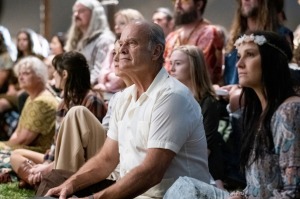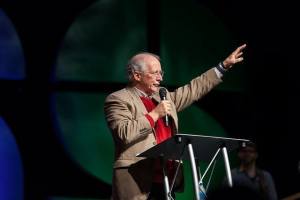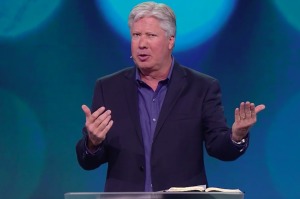Jefferson Bethke's YouTube Hit a Misleading Picture of Jesus, Religion?
Though Jefferson Bethke’s “Why I Hate Religion, But Love Jesus” video may have been intended for good, it might be doing the exact opposite – giving people the wrong impression of who Jesus is and what he actually loves.
Readdressing the issue examined by the spoken word poet in his video, which has gone viral within days of its posting, two pastors – Kevin DeYoung and Jared Wilson – hope to explain why Bethke’s message might not be the most accurate picture of the Jesus they know in the Bible.
While both preachers admired the young Washington resident’s passion for God and found some truth in his words, there was much they found misleading and unhelpful to nonbelievers and believers alike.
And with the video having now drawn over 9 million hits on YouTube, it is important that some ideas be addressed as to not further the confusion.
“Bethke perfectly captures the mood, and in my mind the confusion, of a lot of earnest, young Christians,” DeYoung wrote in his blog on The Gospel Coalition.
“The video is the sort of thing that many younger Christians love. It sounds good, looks good, and feels good. But is it true? That’s the question we must always ask.”
Going through the poem verse by verse, the Michigan pastor analyzed the theology presented by Bethke, which culminated in his opening line: “Jesus came to abolish religion.”
Both he and Wilson took issue with the word “religion.” Though the poet meant it to equal “self-righteousness, moral preening, hypocrisy, and a man-made attempt to earn God’s favor,” the preachers believe it is not the best word to describe what he hoped to convey.
“Words still matter and we shouldn’t just define them however we want,” DeYoung expressed. “‘Jesus hates religion’ communicates something that ‘Jesus hates self-righteousness’ doesn’t. To say that Jesus hates pride and hypocrisy is old news. To say he hates religion – now, that has a kick to it.”
When people hear the word “religion” they automatically think of rules, rituals, dogma, pastors, priests and institutions.
“People love Oprah and the Shack and ‘spiritual, not religious’ bumper stickers because the mood of our country is one that wants God without the strictures that come with traditional Christianity. We love the Jesus that hates religion,” he continued.
But the only problem was that Jesus did not hate religion, DeYoung pointed out. He was a Jew, went to services at the synagogue, observed Jewish holy days, did not come to abolish the Law or the Prophets but to fulfill them, founded the church, established church discipline, instituted a ritual meal, told his disciples to baptize people and to teach others to obey everything he commanded, and insisted that people believe in him and believe certain things about him.
“Jesus was not your go-to-guy for hating religion,” he emphasized.
Jesus made it his mission to obey God perfectly, Pastor Wilson also clarified on his blog. “You better hope Jesus was super-religious, in fact, because it’s his perfect religion we rely on for our righteousness.”
Wilson stated that though the word “religious” made sense on the surface level, it brought much opportunity for error, with people able to confuse Bethke’s definition of what he deemed as “religious” – hypocrisy, legalism – with the biblical definition.
“Some make a boogeyman out of the idea of ‘religious people,’ by which it becomes clear what they mean is ‘traditional people’ or the uncool,” the Middletown Springs Community church leader shared.
“My feeling is that the Bible-thumping, starched suit-wearing, hellfire and brimstone religious people taking the fun out of fundamentalism are becoming fewer and farther between, while the church is brimming with self-righteous hipsters and cooler-than-thous,” said Wilson. “The Pharisees look like Vampire Weekend now. I’m not saying Jefferson is one of those guys; I’m just saying he’s offering them red meat.”
“Unless we define the word to suit our purposes, there is simply no biblical grounds for saying Jesus hated religion,” DeYoung added. “What might be gained by using such language will, without a careful explanation and caveats, be outweighed by what is lost when we give the impression that religion is the alloy that corrupts a relationship with Jesus.”
DeYoung, author of Why We Love the Church: In Praise of Institutions and Organized Religion, also noted that there was no indication in Bethke’s poem that the grace that forgives was also the grace that transforms.
Bethke’s statement that a church was not a “museum for good people,” but a “hospital for the broken,” failed to mention that the purpose of a hospital was to help sick people get better, DeYoung stated.
“Following Jesus is more than keeping rules, but it’s not less. In one sense, loving Jesus is also all about keeping rules,” he stated.
Bethke’s poem also seemed to imply that there was “inherent dignity” in being broken when he shared, “I don’t have to hide my sin because it doesn’t depend on me it depends on him.”
“Jesus like the honesty that acknowledges sin, hates it and turns away, but he does not love authenticity for its own sake,” the Chicago-born theologian DeYoung revealed. “We have to be more careful with our language. When Paul boasted of his weakness, he was boasting of his suffering, his lack of impressiveness, and the trials he endured. He never boasted of his temptations or his sins – past or present. That’s not what he meant by weakness. Being broken is not the point, except to be forgiven and changed.”
While DeYoung did highlight some positive aspects of the video – affirmation of Jesus’ active obedience, focus on the cross, disdain of self-righteousness, invitation for sinners to come to Christ, and understanding of justification by faith alone through grace alone in Christ alone – he still felt it “worth the effort” to examine the theology in detail with “so much helpful ... mixed with so much unhelpful.”
“The strengths in this poem are the strengths I see in many young Christians – a passionate faith, a focus on Jesus, a love for grace, and a hatred for anything phony or self-righteous,” he wrote.
“The weaknesses here can be the weaknesses of my generation (and younger) – not enough talk of repentance and sanctification, a tendency to underestimate the importance of obedience in the Christian life, a one-dimensional view of grace, little awareness that our heavenly Father might ever discipline his children or be grieved by their continued transgression, and a penchant for sloganeering instead of careful nuance.”
Loving Bethke’s humble desire to be honest about his feelings and lead people to Christ and his understanding of the full weight of the Gospel, DeYoung encouraged the young poet to be extra careful and precise as a teacher of millions, speak from the Bible before speaking from his own experiences, and love what Jesus loves “without tearing down what he also loves and people are apt to misunderstand.”
“Thanks for reminding us about Jesus, but try to be more careful when talking about religion,” he concluded. “After all, there is one religion whose aim is to worship, serve, know, proclaim, believe, obey and organize around this Jesus. And without all those verbs, there’s not much Jesus left.”
Wilson also commended Bethke, saying he is “on to something good and right.”
“[B]ut we are on to something good and right to make the right distinctions, lest we put ourselves in the Pharisaical place of saying ‘I thank you God I’m not like those religious people.’”
CIKProductions (Christ is King Productions), run by Christian hip-hop producer Matthew Robertson, produced Bethke’s “Why I Hate Religion, But Love Jesus.”
Bethke has clarified on his Facebook page that though he states that he resents religion in his video, he was “in no way intending” to “bash ‘the church.’”
“My heart came from trying to highlight and expose legalism and hypocrisy,” he wrote.
The young poet previously created another hit titled “Sexual Healing,” which focuses on sexual sin.





























